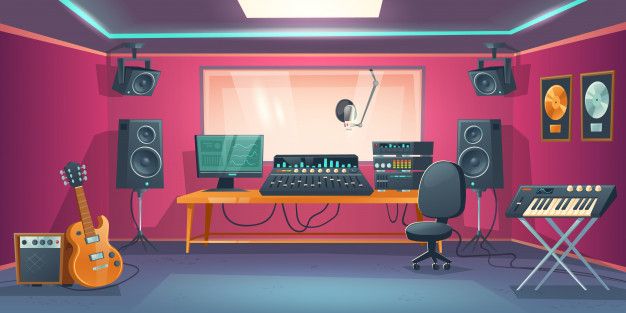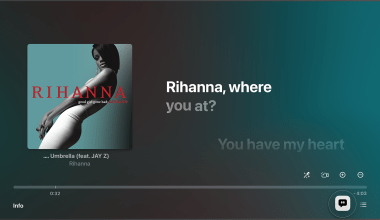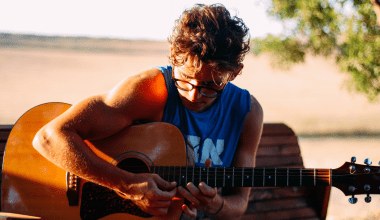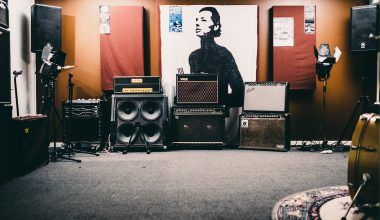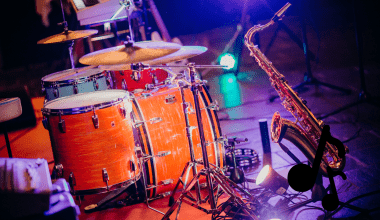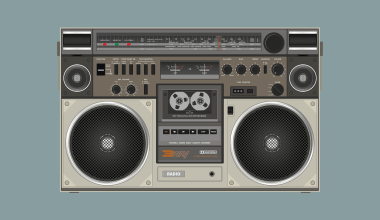When you hear the word “DJ,” what comes to mind? Is it someone mixing beats at a club or spinning records at a wedding? A DJ, short for disc jockey, is much more than just a music player. DJs are artists, curators, and performers who use music to create memorable experiences. They have shaped modern music culture, influencing everything from parties to global music festivals.
This blog explores the question, “What is a DJ?” We’ll dive into their history, different types of DJs, their essential skills, and the tools they use to create magic. By the end of this guide, you’ll have a comprehensive understanding of what it truly means to be a DJ.
The Definition of a DJ
A DJ, or disc jockey, is someone who plays and mixes pre-recorded music for an audience. DJs perform at clubs, radio stations, weddings, parties, and even on global stages.
Here’s what defines a DJ:
- Music Selection: DJs curate playlists to match the mood and energy of an event.
- Mixing Skills: They blend tracks seamlessly to create a continuous flow of music.
- Audience Connection: DJs read the crowd and adapt their music to keep the energy alive.
Understanding what a DJ does goes beyond playing songs—it’s about crafting an experience.
A Brief History of DJs
The history of DJs dates back to the early 20th century.
The Early Days
In the 1930s, radio DJs began selecting and playing records for audiences. Martin Block, a radio announcer, was one of the first to popularize the term “disc jockey.”
The Rise of Club DJs
In the 1970s, the role of the DJ expanded into clubs. Artists like DJ Kool Herc pioneered the art of mixing, creating the foundation for hip-hop and dance music.
Modern Era
Today, DJs are global icons. From Tiësto to Calvin Harris, they perform at massive festivals like Tomorrowland and Ultra Music Festival, proving that DJs are central to modern music culture.
Different Types of DJs
Not all DJs are the same. Depending on their environment and style, DJs can be classified into several categories:
1. Club DJs
Club DJs perform in nightclubs, mixing dance tracks to keep the crowd energized.
2. Mobile DJs
Mobile DJs play at events like weddings, corporate parties, and birthdays. They bring their own equipment and cater to diverse audiences.
3. Radio DJs
Radio DJs curate playlists and entertain listeners with commentary and music on air.
4. Turntablists
Turntablists focus on scratching and advanced mixing techniques, often in competitions.
5. Festival DJs
These DJs perform at large music festivals, playing original mixes and crowd-pleasing anthems.
Each type of DJ brings something unique to the table, highlighting the versatility of the profession.
Essential Skills for DJs
To understand “what is a DJ,” it’s important to know the skills that define them:
- Beatmatching: Aligning the tempo of two tracks to create a seamless transition.
- Mixing: Blending songs harmoniously to maintain flow.
- Scratching: Manipulating records to produce rhythmic sounds.
- Crowd Reading: Adapting to the audience’s energy and preferences.
- Music Knowledge: Understanding different genres and knowing when to play the right track.
These skills require practice, dedication, and a deep love for music.
DJ Equipment and Tools
Modern DJs use a variety of equipment to perform:
1. Turntables and Mixers
Traditional DJs use vinyl turntables paired with mixers to control the sound.
2. CDJs
CDJs are advanced digital players that replicate turntable functionality but use digital files.
3. DJ Controllers
Controllers are compact devices that connect to laptops for mixing music using software like Serato or Rekordbox.
4. Headphones
High-quality headphones help DJs cue tracks and beatmatch accurately.
5. Speakers and Monitors
Good sound systems are essential for delivering music to an audience.
Understanding what a DJ is also means recognizing the tools of their trade.
The Role of DJs in Modern Culture
DJs are more than just entertainers—they are cultural icons:
- Influencing Trends: DJs shape music trends by popularizing genres and artists.
- Community Building: They bring people together through shared musical experiences.
- Innovation: DJs constantly push boundaries with technology and creativity.
DJs have a profound impact on music and culture, making their role irreplaceable.
Becoming a DJ: A Beginner’s Guide
If you’re inspired by what a DJ does, here’s how you can start:
- Learn the Basics: Understand beatmatching, mixing, and music theory.
- Invest in Equipment: Start with a basic controller and software.
- Practice Regularly: Develop your skills through consistent practice.
- Build a Library: Curate a collection of tracks that suit your style.
- Find Opportunities: Perform at small events to gain experience.
Becoming a DJ is a journey that combines passion and persistence.
Conclusion
So, what is a DJ? A DJ is a music curator, entertainer, and innovator. They use their skills and tools to create unforgettable experiences for audiences. From clubs to festivals, DJs have become an essential part of modern music culture.
If you’re curious about DJing or want to become one, dive into the world of music, practice your craft, and embrace the art of mixing. DJs are proof that music has the power to connect and inspire people across the globe.
Related Articles:
For further reading, explore these related articles:
- How to Become a DJ: Your Step-by-Step Guide to Start a DJ Career
- Find the Perfect Professional DJ Mixer for Your Setup
For additional resources on music marketing and distribution, visit Deliver My Tune.
